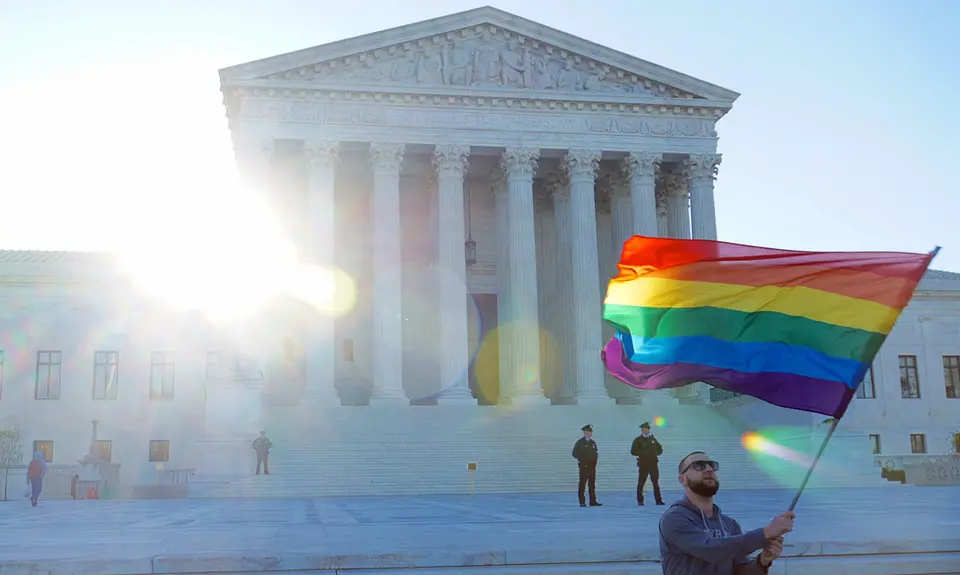This op-ed was distributed by Trice Edney Newswire.
We all know that what people do tells you more about them than what they say. That’s true for politicians, too.
We see politicians who call themselves “pro-life” and “pro-woman” when they’re pushing to make abortion a crime, but shrug their shoulders when those laws result in greater risk of women dying during pregnancy-related medical crises. Or who claim to be “pro-child” but try to force a 10-year-old rape victim to accept the physical and emotional trauma of bearing her rapist’s child.
It’s the same when it comes to marriage. A lot of politicians who posture as defenders of marriage just voted against the Respect for Marriage Act, which passed the U.S. House of Representatives on July 19, and would ensure that equal treatment of same-sex couples under federal law if passed by the Senate.
The right to marry has not always been protected for everyone. My own parents had to deal with the fact that some states still made it illegal for my white father and Black mother to get married. A Virginia judge upheld that state’s anti-marriage law, claiming that God “did not intend for the races to mix.” In 1967, the U.S. Supreme Court overturned laws against interracial couples getting married.
Almost 50 years later, the Supreme Court rejected similar arguments that were used to defend laws making it illegal for same-sex couples to get married. When I was serving as president of the NAACP, I was proud to lend the organization’s support to the marriage equality movement. And I was thrilled when the Supreme Court ultimately rejected state laws that discriminated against loving same-sex couples.
Mildred Loving, half of the couple that took the interracial ban all the way to the Supreme Court, was also on board. She was grateful for the freedom to marry the person she loved and for the family they built together. And she wanted all Americans to have that same freedom.
Most Americans agree. By far. Support for interracial marriage reached 94% last year, Gallup reports. This year, support for same-sex couples’ right to marry hit 71%, according to Gallup. But about three-quarters of Republicans in the U.S. House of Representatives just voted against protecting those couples under federal law.
Why do we need a federal law to protect people’s freedom to marry? Because anti-equality groups have never accepted the Court’s 2015 ruling that same-sex couples have a constitutional right to marry under the 14th Amendment and that states cannot ban same-sex marriage. They have vowed to overturn it. And because Justice Clarence Thomas just called on the Court to reconsider and overturn its marriage equality ruling — along with other rulings recognizing a right to privacy, protecting access to contraception and decriminalizing consensual sexual relationships between people of the same sex.
For years, Thomas was an often-lonely voice on the extreme right wing of the Court. But he has a lot more company out there now, especially with the three justices named by former President Donald Trump. They just overturned Roe v. Wade, stripping Americans of the right to make abortion-related decisions about their bodies and families. Far-right state legislators started competing to see who could pass the most extreme laws targeting pregnant people, their supporters and even their health care providers.
Thomas is just getting started, and it is clear that the far-right movement that helped Trump stack the Supreme Court has a lot more in mind than overturning Roe v. Wade. Same-sex couples could be the next target. And we’re all targets for the ideologues who want to demolish a century of progress by dismantling the federal government’s authority to fight poverty, promote better public education and provide access to health care.
We need to stand up to them now. It’s important for Congress to side with the vast majority of Americans and pass a law giving federal protection to the millions of people who are in interracial and same-sex marriages, and to all those who may want to follow their hearts into such a marriage in the future.
It’s a good sign that the Respect for Marriage Act passed with 47 Republicans joining the Democratic majority. It’s not such a good sign that three-quarters of the Republicans voted no. You can bet those members of Congress describe themselves as lovers of freedom and defenders of families. But their actions are speaking a lot louder than their words.
